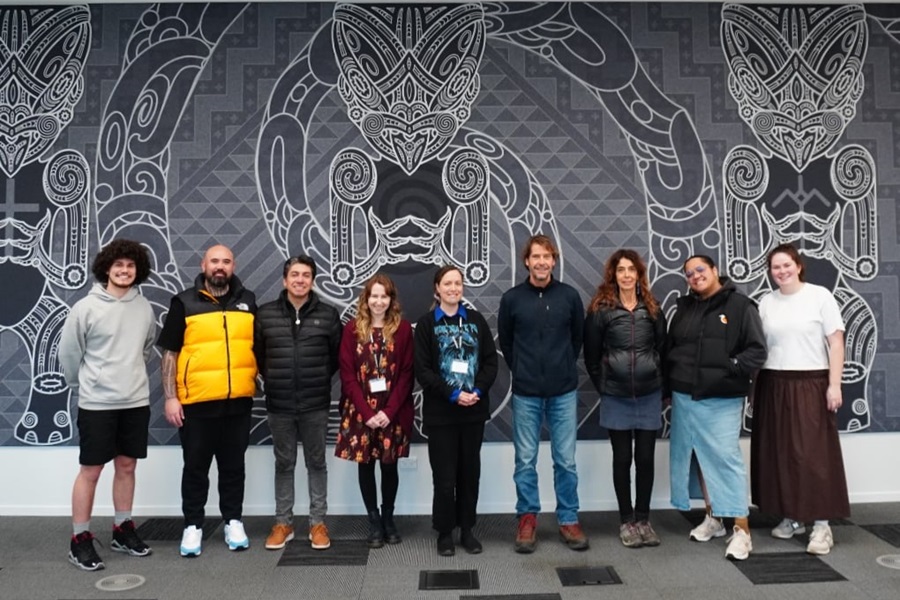|
During his visit to Auckland University of Technology in New Zealand (AUT), Leonardo Lleuful Cruz, the Coordinator of Intercultural Affairs of the Faculty of Engineering and Science of the Universidad de La Frontera (UFRO), got to know the intercultural integration processes at AUT. |
In order to strengthen the intercultural perspective within the Faculty of Engineering and Science, the Universidad de La Frontera (UFRO) established a valuable partnership with Auckland University of Technology (AUT) in New Zealand. Within the framework of this partnership, Leonardo Lleuful Cruz, the Coordinator of Intercultural Affairs of the Faculty of Engineering and Science and academic of the Department of Civil Engineering, travelled to New Zealand to participate in a series of meetings to learn more about the integration of Māori culture and worldview in the work of AUT. Thanks to the invitation of Dr. Charles Walker, the Director of AUT‘s School of Future Environments, and the support of Dr. Ricardo Chacón, AUT‘s International Partnerships Manager, the UFRO academic was able to see and learn about how AUT incorporates interculturality in its activities, successfully promoting the recognition and appreciation of the Māori people. “This visit was fascinating and enriching because I had the chance to meet with different members of the university community, opening a variety of possibilities of integrating interculturality into the processes of our university and more specifically the Faculty of Engineering and Science,“ Leonardo Lleuful explained. “Many aspects of the Māori culture, such as Matauranga Māori (knowledge), associated with the so-called soft skills, such as teamwork, respect, and sustainability, are a successful part of the methodology, for example in research, outreach and community engagement, or undergraduate and graduate studies, with protocols that allow a respectful and balanced relationship between the cultures. That is something we also aspire to, incorporating the Mapuche worldview and culture in the internal processes of our Faculty,“ added Leonardo Lleuful. Inspired by the experience of AUT, the faculty’s Intercultural Affairs Office envisions the incorporation of ancestral Mapuche knowledge in the educational processes to complement the current educative pillars of UFRO. This strategy would also comply with UFRO‘s emerging Intercultural Relations Policy. “In the short and medium term, we want to incorporate these and other improvements within our faculty through a work plan we are developing. These actions will allow us to lead the development of interculturalism at different levels of the Universidad de La Frontera, since we are committed to becoming a bridge between the Mapuche culture and the Western culture,“ Leonardo Lleuful emphasized. Written by: Daphne Bormann Parada, Faculty of Engineering and Science |





